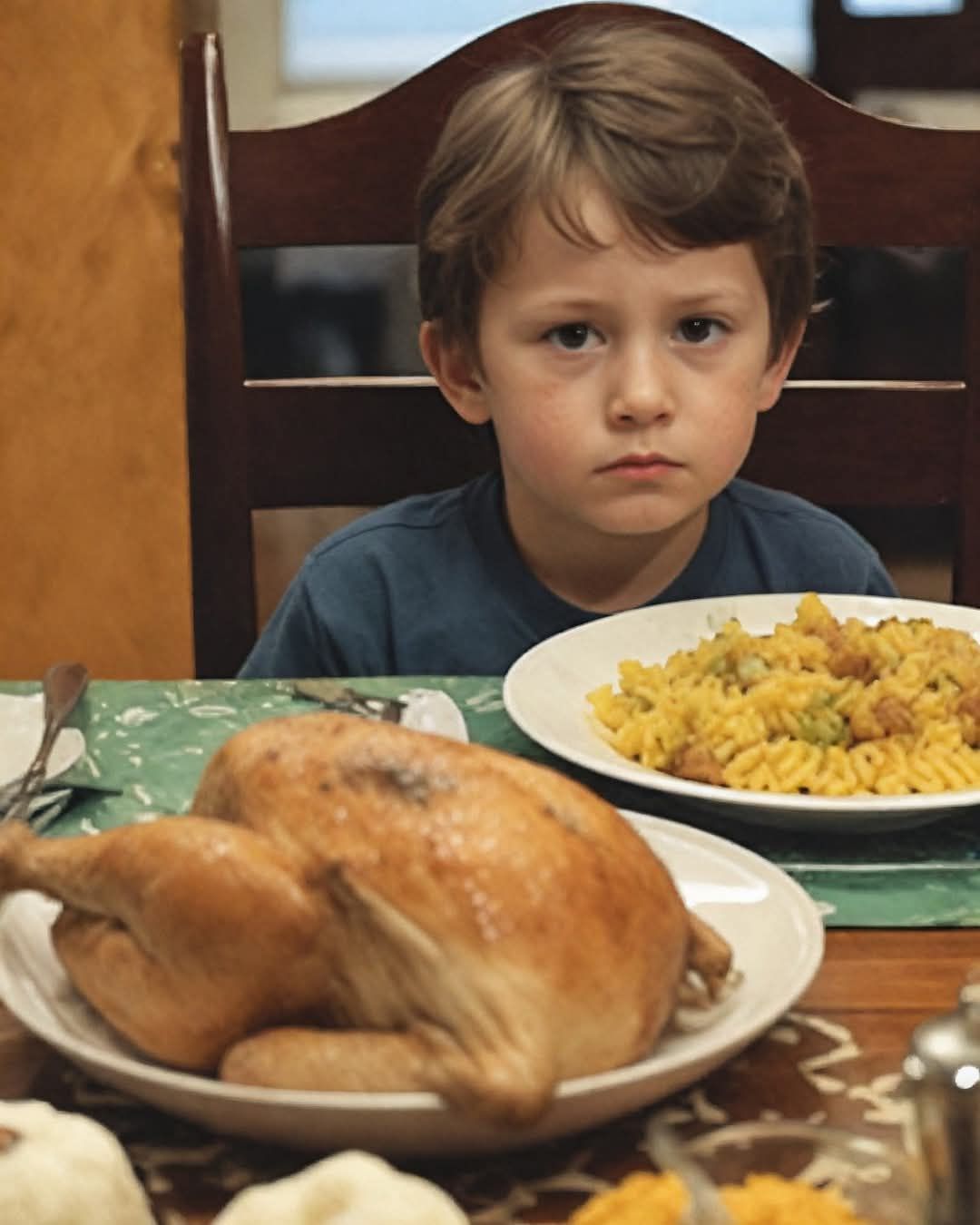“You’re not hungry, sweetheart?” I asked gently.
He just shrugged. “Not really.”
Mark and I exchanged concerned glances. Ethan was usually thrilled about Thanksgiving, especially the mac and cheese and dessert. Something was definitely wrong.
We didn’t press him too hard at the table, especially with my mother visiting. She can be critical, and I didn’t want to make things worse for Ethan with extra tension.
But as the evening went on, it was clear something was bothering him. He skipped dessert—something he never does. Meanwhile, my mother didn’t seem to notice. She spent much of the evening nitpicking the meal, criticizing our boxed ingredients and making remarks that stung more than I let on.
When she finally left, Mark and I immediately went to check on Ethan. We found him curled up in bed, hugging his pillow.
“What’s wrong, honey?” I asked softly, sitting beside him.
Ethan hesitated, then looked up with tearful eyes. “Grandma told me the truth about you and Dad,” he whispered.
My heart sank. “What truth?”
“She said you’re losers. That we’re poor, and that’s why we don’t have a real Thanksgiving like other people.”
It took everything in me not to cry right there. Mark’s face tightened, but his voice was steady as he said, “Ethan, that’s not true. Your mom and I love you, and we work hard to take care of you.”
Ethan sniffled. “She said Dad doesn’t work hard and that you’re not good at being a mom.”
I wrapped my arms around him. “Sweetheart, none of that is true. Families aren’t measured by money or expensive food. What makes a family real is love, and we have so much of that.”
Mark added, “Sometimes, even people we care about say hurtful things. But what matters is how we treat each other—and how much we care.”
Ethan nodded slowly. “So… can I have some pumpkin pie now?”
Mark and I both smiled with relief.
He came to the kitchen and ate like a kid who hadn’t seen food in days. Mac and cheese, turkey, green beans—then a big slice of pie. He fell asleep on the couch, full and finally content.
That night, Mark and I agreed: things needed to change.
The next day, I invited my mom over to talk. She arrived with the same dismissive attitude, making a snide comment before she even sat down. But this time, I didn’t stay silent.
“Ethan told us what you said to him last week,” I began. “About Mark, about me, and about our family.”
She brushed it off. “I was just being honest. He needs to know the truth.”
“Telling an 8-year-old his parents are failures isn’t honesty—it’s cruelty,” Mark said firmly.
She shrugged. “Maybe if you’d made better choices in life…”
I stood my ground. “Enough. We love our son, and we’re proud of the life we’ve built. If you can’t respect that, you won’t be a part of it.”
“You’re cutting me off?” she asked, stunned.
“We are,” I said. “Until you can treat us—and especially Ethan—with kindness and respect, you won’t be in our lives.”
With a huff, she left. We haven’t heard from her since.
It hasn’t been easy, but in the weeks that followed, Ethan became happier and more relaxed. We set up a carpool with other parents for school pickups, and our home has felt lighter—more peaceful.
One evening, just before Christmas, we were baking cookies when Ethan looked up at me and said, “Mom, I think our family is the best.”
My eyes welled up. “Me too, buddy. Me too.”
If there’s one thing I’ve learned, it’s this: sometimes, protecting your child means setting firm boundaries—even with your own parents. Family should be a source of love, not pain. And no matter what you have—or don’t have—what truly matters is the love you share around your table.

